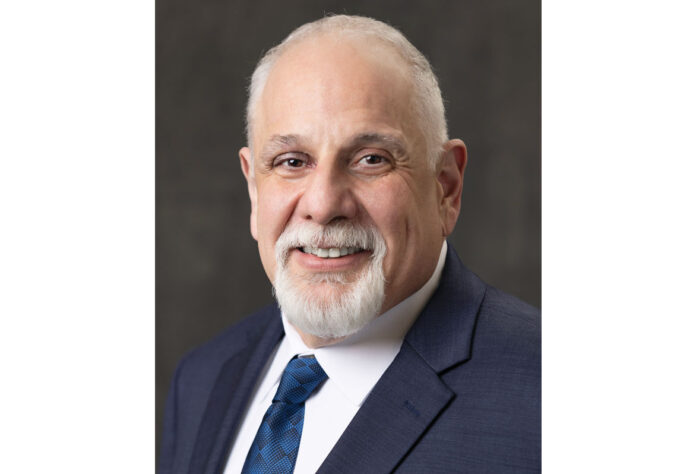by Nick Aitoro
Even when the intent is purely informational, people may at times feel attacked when asked questions. This reaction is not uncommon, whether in or out of the workplace. One of the most obvious reasons for this reaction is tied to emotional intelligence and the impact of past experiences. When someone feels triggered, it is often a sign of an amygdala hijack – an instinctive response rooted in past traumas. This automatic reaction can make even neutral inquiries feel confrontational.
However, the issue is more nuanced, with a deeper factor: relational trust. Building on respect, integrity, empathy, and communication, relational trust fosters meaningful enduring connections. Establishing trust at a foundational level creates an environment where conversations feel safe instead of threatening.
The Role of Relational Trust in the Workplace
Relational trust is the backbone of a healthy workplace culture. When employees feel respected, valued, and heard, they are more likely to engage deeply in their roles. A culture of trust fosters open communication, encouraging employees to share ideas, ask questions, and collaborate without fear of judgment or misunderstanding. Conversely, lacking trust leads to hesitation, disengagement, and reluctance to contribute fully.
Over time, organizations have recognized that workplace culture is the foundation of employee engagement. When employees feel emotionally invested in their work and connected to their team, they go above and beyond – not out of obligation, but because they genuinely care about their contributions.
Artificial Intelligence and Relational Trust
Artificial intelligence (AI) has become an integral part of the workplace in today’s rapidly evolving digital world. From automating tasks to providing instant information, AI tools like ChatGPT have revolutionized how we work and interact. While these advancements boost efficiency and accuracy, they also introduce unintended challenges – particularly in terms of trust and interpersonal relationships.
We live in an era where verifying information is instantaneous. A few taps on a smartphone or a quick query to an AI tool can confirm – or contradict – what someone has just said. While this capability is useful, it can also erode trust in human expertise. Employees who frequently have their knowledge verified in real time may feel scrutinized, undervalued, or even dismissed, leading to unintended emotional and psychological consequences.
Imagine you’re in a project review meeting with your engineering team. A seasoned engineer presents a solution based on years of hands-on experience. Instead of acknowledging their input, you quickly turn to an AI-powered analysis tool to verify the feasibility of their approach. While your goal may be to enhance decision-making with data, this action can signal doubt in their expertise. If this behavior becomes routine, experienced team members may feel their insights are being second-guessed by technology, potentially eroding trust and discouraging open collaboration.
The Psychological Impact of AI-Based Verification
The growing reliance on AI for verification can lead to several workplace challenges, including:
Increased Anxiety & Stress – Constant fact-checking may make employees feel under continuous scrutiny, leading to hesitation and self-doubt.
Reduced Confidence & Self-Worth – Frequent AI-driven corrections can cause employees to question their expertise, potentially leading to feelings of inadequateness.
Lower Engagement & Motivation – Employees may become less enthusiastic about sharing insights if they feel their knowledge will always be double-checked.
Erosion of Workplace Trust – If AI is perceived as a surveillance mechanism rather than a support tool, employees may resist its use.
Emotional Fatigue & Frustration – Repeated AI verifications can feel demeaning, particularly for experienced professionals who have honed their skills over years of practice.
Striking a Balance Between AI and Human Intelligence
AI is a powerful tool, but its role in workplace interactions must be carefully managed to ensure it enhances rather than diminishes trust. To create a balanced approach, organizations and leaders can:
Encourage Open Dialogue – Foster discussions about AI’s role in workplace decision-making, ensuring employees feel valued for their contributions.
Reinforce Human Expertise – Recognize and respect employees’ knowledge and experience. AI should complement, not replace, human judgment. While AI offers immense potential to transform business operations, success lies in striking the right balance between technological advancement and human expertise.
Use AI as a Learning Tool, Not Just a Validator – AI should supplement human expertise rather than serve as an arbiter of truth.
Build a Culture of Trust – Develop an environment where employees feel confident in their abilities and are not pressured to prove their expertise constantly.
Foster Innovation and Avoid Stagnation – Over-reliance on AI for verification can stifle innovation, discouraging creative problem-solving and fresh perspectives.
Building a Trust-Based Workplace
Creating a culture of trust doesn’t happen overnight, but small, intentional efforts can have a significant impact. Leaders and team members alike can contribute by:
Practicing Active Listening – Showing genuine interest in colleagues’ thoughts and concerns fosters mutual respect.
Communicating with Clarity and Empathy – Thoughtfully framing questions and feedback helps prevent misinterpretation.
Encouraging Psychological Safety – Cultivating an environment where people feel comfortable speaking up without fear of negative consequences strengthens trust.
Leading with Integrity – Following through on commitments and being transparent in decision-making builds credibility and confidence.
When relational trust becomes a cornerstone of workplace interactions, employees feel more empowered, collaboration flourishes, and misunderstandings diminish. Instead of perceiving questions as challenges, people can embrace them as opportunities for learning, growth, and connection.
Navigating the Future of AI in the Workplace
As AI shapes modern workplaces, leaders must recognize its impact beyond efficiency gains. In contrast, business leaders acknowledge the critical efficiencies that can be generated by introducing AI. Still, they need to recognize “AI disappointment,” which is the gap between the expectations set for AI and its actual capabilities. Future research should focus on exploring AI’s limitations and the interplay of human intelligence and emotional intelligence in an organizational setting.
Human intelligence plays a critical role in the intersection of AI and emotional intelligence by providing the foundational cognitive and emotional abilities necessary for reliance, collaboration, and professional growth within organizations. While AI can analyze vast amounts of data and automate decision-making, it lacks the intrinsic human qualities of empathy, intuition, and ethical reasoning.
Human intelligence, particularly emotional intelligence, enables individuals to interpret emotions, navigate social complexities, and build meaningful relationships, which is essential for fostering trust in an AI-integrated workplace. Leaders and employees who leverage AI-driven insights and human emotional awareness can create environments where collaboration thrives, ensuring that technology enhances, rather than replaces, human connections.
Ultimately, the synergy between AI capabilities and human intelligence will dictate how effectively organizations adapt to evolving work dynamics, maintain ethical leadership, and support continuous professional development.
By integrating AI thoughtfully and with awareness of its social and emotional implications, companies can harness its benefits while maintaining a workplace that values human expertise and innovation. Ultimately, AI should be a tool that empowers employees, not one that diminishes their confidence and credibility.
Nick Aitoro is Director of Facilities at Little Creek Casino Resort in Shelton, WA. He can be reached by calling (360) 427-3089 or email nicholas.aitoro@littlecreek.com.















































